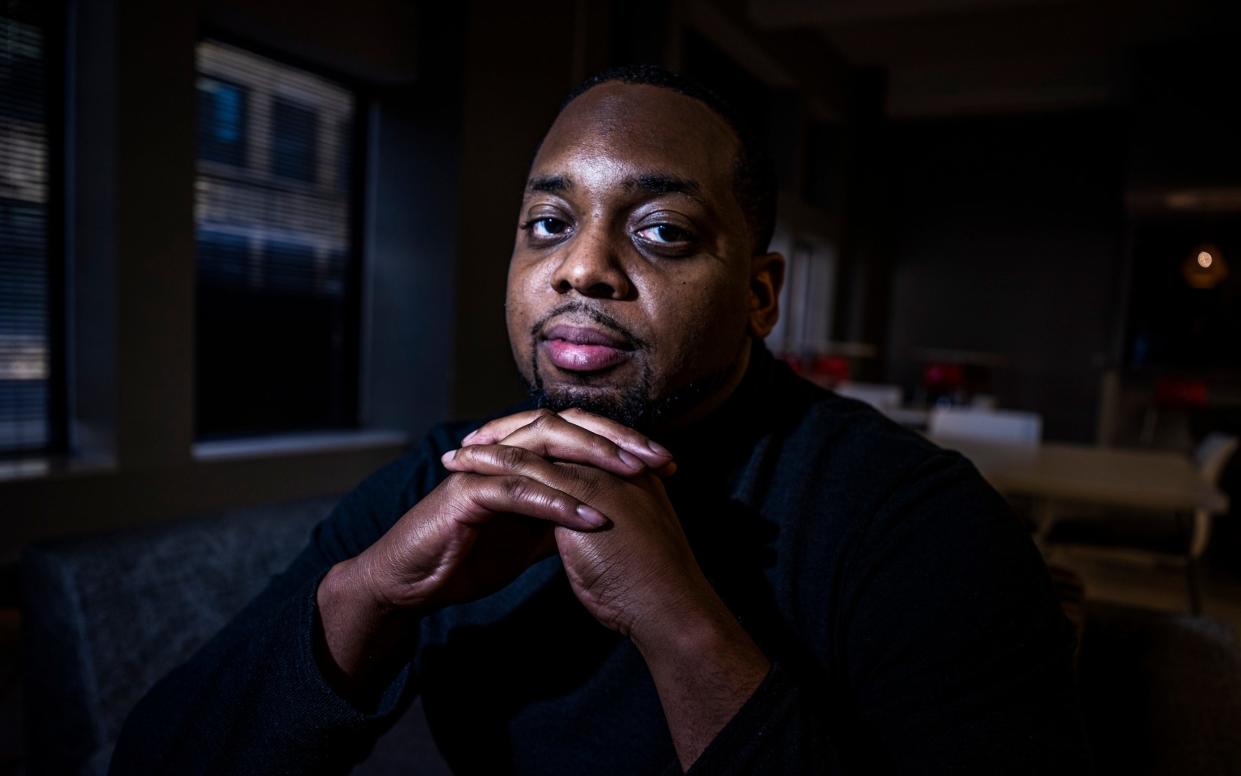Derek Chauvin's lawyer requests retrial after claiming former officer did not receive fair hearing

- Oops!Something went wrong.Please try again later.
Derek Chauvin's lawyer has requested a new trial over the death of George Floyd, arguing the former officer was deprived of a fair trial.
Eric Nelson filed the motion on the grounds of "prosecutorial and jury misconduct" and the court's refusal to change the venue of the trial and sequester the jury amid intense public scrutiny.
In the motion, filed in a Minneapolis district court on Tuesday, Mr Nelson said: "The publicity here was so pervasive and so prejudicial before and during this trial that it amounted to a structural defect in the proceedings."
It came after a photograph of one of the jurors in the case wearing a Black Lives Matter T-shirt that read "get your knee off our necks" - a reference to Mr Floyd's death - at an event in Washington last year was shared widely online in recent days.
The juror, Brandon Mitchell, has defended his attendance at a protest last year. The rally to commemorate the 1963 march on Washington during which Martin Luther King Jr's delivered his seminal "I have a dream" speech was attended by Mr Floyd's family and featured speeches on victims of police violence.
Mr Mitchell, who is black, was one of 12 jurors to convict Mr Chauvin of murder and manslaughter after kneeling on Mr Floyd's neck for more than nine minutes.
The 31-year-old said he responded "no" to two questions about attending demonstrations during the jury selection process. The first asked prospective jurors whether they had participated in any demonstrations over police brutality in Minneapolis. The second asked if they had participated in any other protests about police use of force or police brutality.
Mike Brandt, a Minneapolis defense attorney not involved in the case, said the revelation alone could not overturn Mr Chauvin's conviction, but it could be combined with other issues.
Mr Brandt cited the announcement of a $27 million payout to the Floyd family during jury selection, huge protests over the police shooting of a black man during the trial and the judge's refusal to move the proceedings out of Minneapolis as potential arguments for an appeal.
Ted Sampsell-Jones, a professor at the Mitchell Hamline School of Law, said the photograph of Mr Mitchell at the march last August was "evidence that Chauvin can point to in order to establish that his right to an impartial jury was denied".
"Speaking frankly, Chauvin did not have a fully impartial jury in the sense we usually give criminal defendants. That wasn't the fault of the judge or the prosecutors, it was simply a function of the incredible publicity and public pressure" surrounding the trial, he said.
Mr Mitchell, the first juror to publicly identify himself, acknowledged attending the rally in Washington last August but said he considered it to be an event commemorating King's speech and "100 per cent not" a march for Mr Floyd.
Mr Mitchell also told the Minneapolis Star Tribune that he had no recollection of owning or wearing the "get your knee off our necks" T-shirt.
"I think I was being extremely honest," he said of his responses during the jury selection process. "I gave my views on everything — on the case, on Black Lives Matter."
During jury selection, Mr Mitchell told the defence lawyer that he had a "very favourable" opinion of Black Lives Matter, but he felt neutral about the pro-police mantra neutral about "Blue Lives Matter". He said he mixed with police officers at his gym who are “great guys" and felt he could look at the case objectively.

